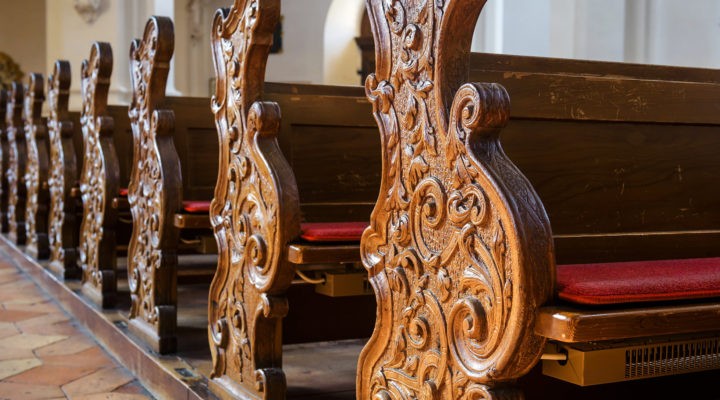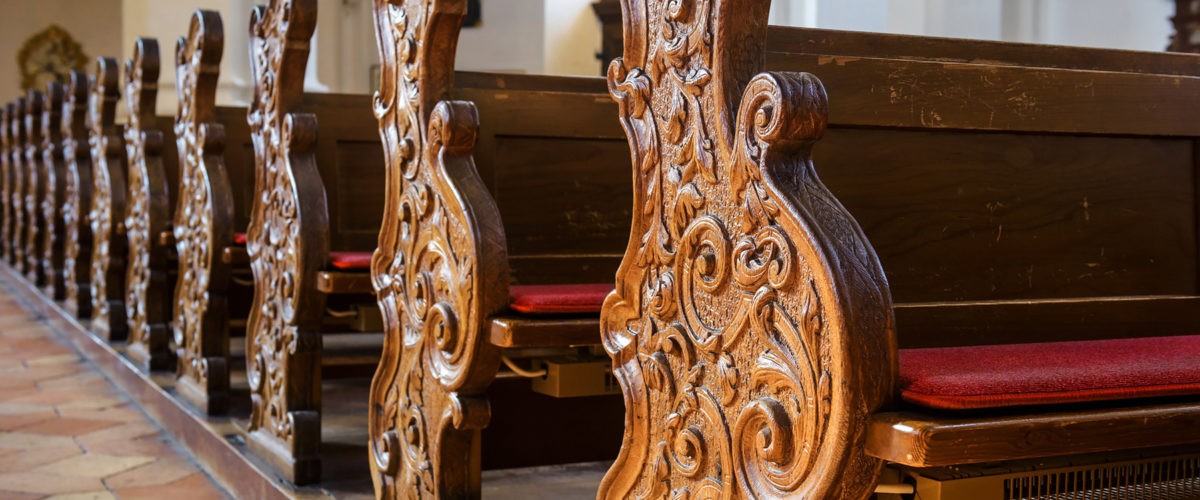More than 65 years of “church going” has made me appreciate a comfortable “church.” My bum is not what it used to be, so a little padding helps — actually a lot. A good sound system that can fill in some of the words my failing hearing misses also helps because, well, I do want to hear what is going on. I like a comfortable temperature, not too cold, not too hot, but just right.
However, American Christians face a peril of getting too comfortable in church.

Michael Chancellor
First, we get too comfortable with the message. Growing up hearing the gospel and the American version of the gospel can desensitize us to the radical nature of the gospel of Christ. The multi-season television production “The Chosen” attempts to capture some of that radical nature. One of my favorite lines follows the calling of Matthew by Jesus from his tax collection booth, which precipitates protests from the other disciples. They begin to tell Jesus all that Matthew has done wrong, when Jesus says, “Get used to different.”
In that phrase, the radical nature of the gospel is set out. I like it so much I have adopted it for my clients who face daunting changes that require them to “get used to different.” The gospel should make us uncomfortable.
The problem is, different is uncomfortable, especially in our culture into which the church had gotten way too embedded and compromised so much.
The message of Christ calls us to a different relationship with God, a different focus, a different life, a different way of living.
Second, we have to relate differently to our neighbor, and when we don’t we should feel uncomfortable. The gospel calls us to be a different kind of neighbor. Within that is enlarging our understanding of who our neighbor is in these times. Our neighbors are not just those bwho are like us.
Instead, they are people for whom Christ died. It is really time to get over our tribalism as believers. The hypocrisy of spending millions to send missionaries to people we will not acknowledge on the street or in the grocery store needs to end.
“The hypocrisy of spending millions to send missionaries to people we will not acknowledge on the street or in the grocery store needs to end.”
It is also time for God’s people to quit mimicking the misinformation about migrants coming across our Southern border. Right-wing media outlets continue to inflame with their rhetoric and distortions about the people who are part of a humanitarian migration to safety. Christians should be uncomfortable when they see children and fleeing adults treated so disrespectfully as they have been over the last few years.
Third, we have to be comfortable with our “neighbor” sharing “our” space at church. Such a statement means we take away our claim to “our” space. The challenge to do that right and well should make us uncomfortable. Moving on also means we become a church for all who seek Christ and for those who are unaware they are seeking Christ. They may be seeking help with children, marriages, addictions, English as a Second Language, or support for PTSD. However, what we know about each who comes to us for whatever reason is that they are someone for whom Christ died.
We also must relinquish our comfortable preferences about what church looks like and whose needs are addressed. There is an incredible selfishness that is stifling the life out of congregations as they battle who will decide about songs or schedules or priorities or programs.
One of the most powerful memories I have about attending church happened in a little community called Lemon nestled right in the middle of burning sugar cane fields in a rural part of Espirto Santo, Brazil. Crowded into this tiny, modest stucco building, I sat right next to a 5-year-old boy on an uneven uncomfortable slatted pew. Light bulbs hung from the ceiling, screenless windows were open, and crowds of faces filled the spaces of the windows.
“There is a peril, a powerful peril for the congregation that gets too comfortable with the gospel, content with the gathered crowd with little thought to the ungathered millions.”
We sang in Portuguese, and the little boy beside me sang every song, every verse with all his heart. I was truly “at church.” Having sons that age back home, I wondered if they could sing like this boy was singing.
Too many missionary kids came to school in Abilene, Texas while I was a pastor at Crescent Heights Baptist Church and were grieved by how “lazy,” and “comfortable” church members were. I understood that then and understand it now.
There is a peril, a powerful peril for the congregation that gets too comfortable with the gospel, content with the gathered crowd with little thought to the ungathered millions, lulled into lethargy with the predictable, unmoved by a lost and dying world, unchallenged by the Spirit to see others differently, to love others more deeply, to extend grace more profoundly, and always, always to lead with mercy and kindness.
Michael Chancellor served 33 years as pastor of four Baptist churches in Texas, seven years as a mental health manager in a maximum-security Texas prison and now is a therapist in private practice in Round Rock, Texas.
Related articles:
Worth fighting over: insights about churches and change | Opinion by Bill Wilson
Change is inevitable. Transformation is optional. | Opinion by Amy Butler


